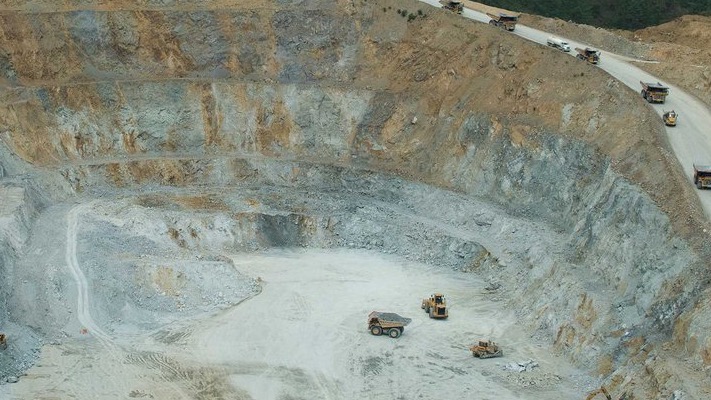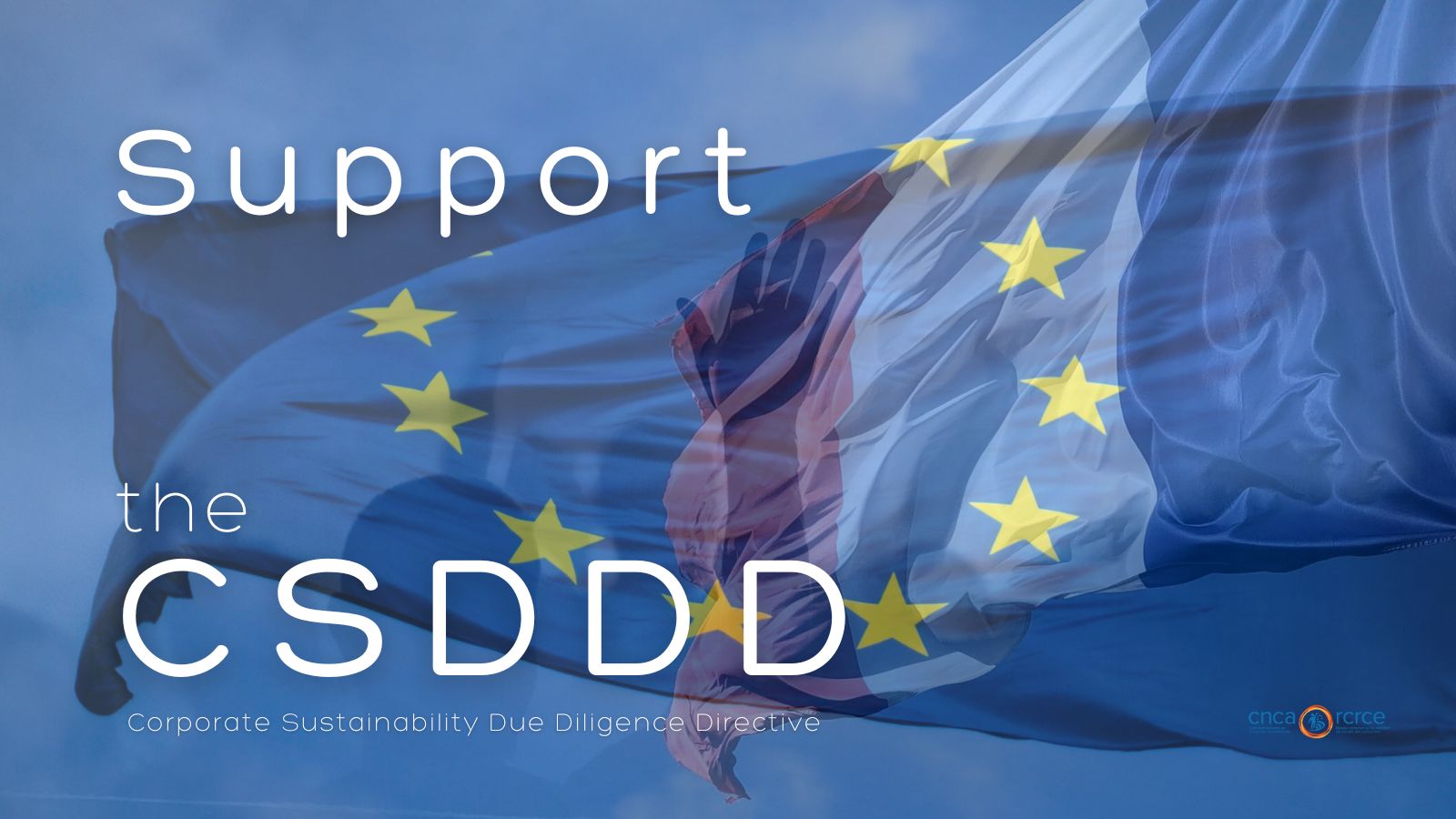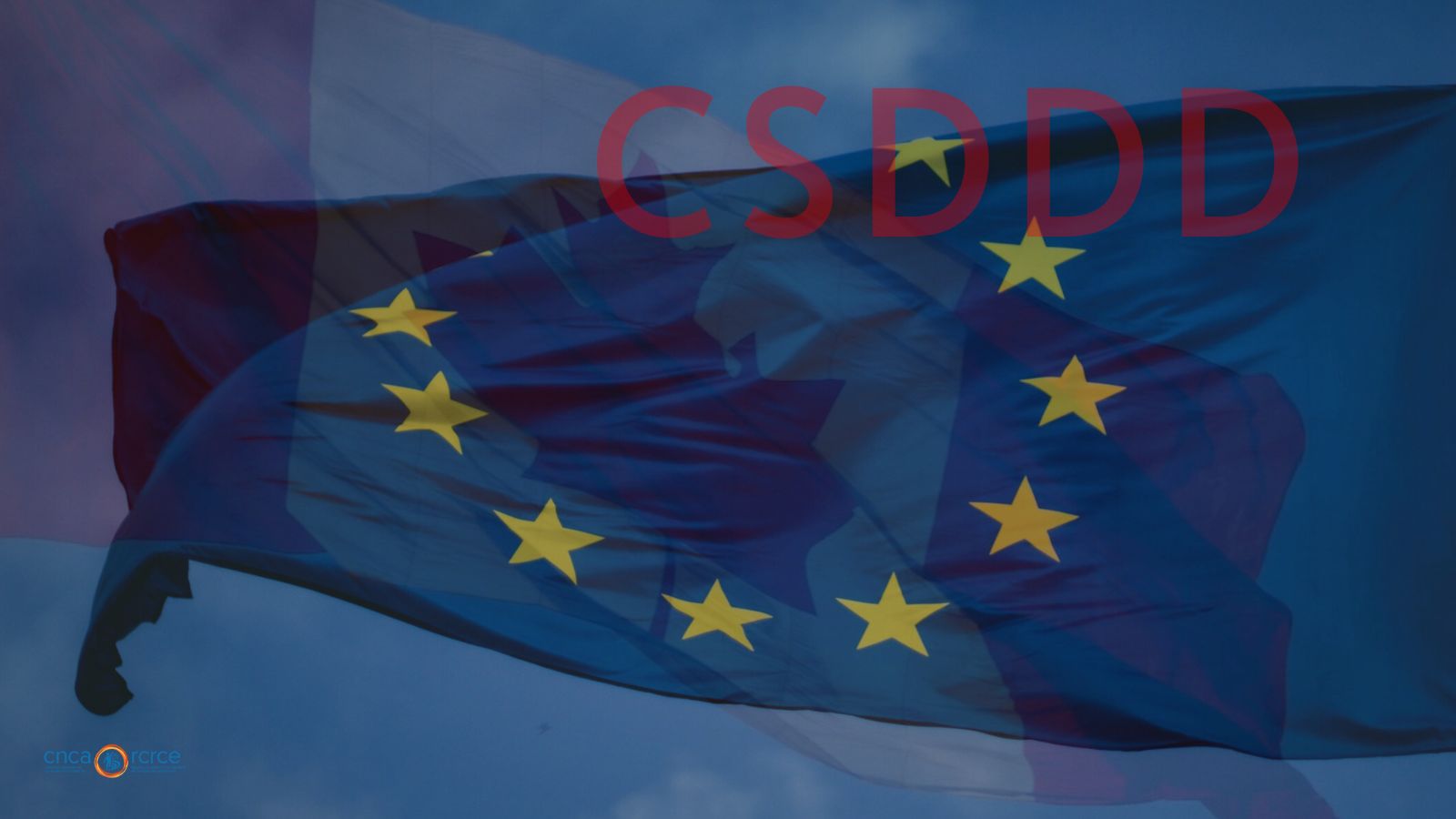The Canadian government actively promotes and supports the international operations of Canadian extractive companies. This support takes many forms, including political backing (eg. support by embassies and trade commissions in opening doors overseas).
Shin Imai v. Canada
Access-to-information lawsuit concerning Canada’s intervention in human rights cases against Goldcorp Inc. in Guatemala
Case update: The Federal Court has ruled that the Canadian government is not legally required to disclose details about its diplomatic interventions on behalf of a Canadian mining firm accused of human rights abuse in Guatemala. The court found Ottawa was justified in blacking out key details in the documents it released because revealing them would reasonably be expected to bring “harm to Canada’s international relations.” The court initially issued a confidential decision, several weeks before making it public in February.
Read the latest press release (2 March 2022).
“If Canadians can’t obtain meaningful information about the diplomatic support our government is providing to companies overseas, then our public disclosure rules are out of date and in need of reform,” says Emily Dwyer, Policy Director at the Canadian Network on Corporate Accountability.
Overview of the case
On March 2, 2021, the Federal Court of Canada heard arguments in a lawsuit seeking information about the Canadian government’s response to a human rights case concerning a Canadian-owned mine in Guatemala. The suit was brought by York University law professor and co-founder of the Justice & Corporate Accountability Project (JCAP), Shin Imai, who first sought the information through access-to-information requests in 2014.
The documents released to date, though redacted, show that Canadian officials engaged on Goldcorp’s behalf with decision-makers in Guatemala and Washington after the Organization of American States’ human rights commission called for a suspension of operations at the company’s Marlin mine in 2010. The Guatemalan government ultimately denied the commission’s request, which was meant to protect the rights of Indigenous communities, and the commission retracted it in 2011.
The lawsuit contends that Global Affairs Canada improperly withheld information from public disclosure, and that the Office of the Information Commissioner erred when it reviewed the case and found the redactions were justified under the Access to Information Act. Professor Imai asked the court to order the disclosure of further details that could clarify the extent to which Canada pressed the human rights commission and the Guatemalan government to act in Goldcorp’s interest, without due regard for the concerns of Indigenous communities. In doing so, Canada may have run afoul of its international obligations.
Mr. Imai’s legal challenge was developed by JCAP and is supported by the following civil society groups: Above Ground, Amnesty International, the Canadian Network on Corporate Accountability, Inter Pares, MiningWatch Canada and the Steelworkers Humanity Fund.
“The Canadian government’s decision to go to court rather than disclose this additional information raises the question: what else did it do to support Goldcorp?” says Shin Imai of JCAP. “The public should be able to scrutinize the government’s actions here, to assess the extent to which it undermined Indigenous communities’ efforts to defend their rights.”
Why this case matters
Prof. Imai’s lawsuit argues that there is a clear public interest in disclosing the records. The public must be able to scrutinize the extent to which the Canadian government acted in the service of Goldcorp’s interests, while undermining Indigenous communities’ efforts to defend their rights. This disclosure would inform broader public debates regarding mining industry influence over Canadian foreign policy and the government’s compliance with its own policies and international human rights law.
The case also highlights broader concerns regarding Canada’s access-to-information system, notably the broad use of exemptions to avoid accountability, competence and timeliness in government responses to requests, and the Office of the Information Commissioner’s effectiveness in guaranteeing the public’s right to access information. The current review of the Access to Information Act must address these concerns.
Timeline of events
Uncovering secrets: Canada abandons human rights in gold-mine debacle
2003 – A 25-YEAR LICENCE, WITHOUT CONSULTATION: Amidst local protests, Glamis Gold is granted a 25-year mining license for the Marlin project by the Guatemalan Ministry of Mines. The Maya Mam people of Sipacapa claim the licence was granted without them having been consulted.
January 2005 – MASS PROTEST, VIOLENT REPRESSION: Indigenous communities concerned about mining pollution launch a 40-day blockade of the PanAmerican highway to prevent the transport of mining equipment. According to reports, the Guatemalan Ministry of the Interior orders around 1,500 police troops and 300 soldiers to clear the blockade. As police and military shoot into the crowd, one protestor is killed and 16 injured. President Oscar Berger reportedly justifies the use of security forces as necessary to protect investors.
June 2005 – OVERWHELMING OPPOSITION TO MARLIN MINE: Municipal and village leaders in Sipacapa agree to conduct a series of consultations and a public ballot referendum on mining in the municipality. A local court grants Glamis Gold an injunction to stop the referendum. The injunction is revoked by the Constitutional Court. Authorities in 11 of 13 villages vote against mining and 98% of voters in the ballot referendum vote “no” to the mine.
November 2006 – FIRST WATER TESTING: Flaviano Bianchini, an Italian volunteer for Guatemalan NGO Madre Selva conducts a water quality study of the Tzalá river. According to Bianchi, the samples reveal high concentrations of aluminum, magnesium, copper, and iron at levels deemed unsafe for drinking by the World Bank, the WHO, the USA EPA and Canadian Government standards. Goldcorp itself begins annual water monitoring. Some tests are conducted by a group that included community members, funded by the Canadian Embassy and Goldcorp. These reports find that water quality conforms with regulations.
December 2007 – COMMUNITIES PETITION THE IACHR: Thirteen Indigenous communities in Sipacapa file a petition with the Inter-American Commission on Human Rights (IACHR) against the state of Guatemala for authorizing the Marlin mine without consulting them and allowing potentially unsafe processing methods that could lead to water contamination.
2008 – CATHOLIC NGO BEGINS WATER MONITORING: A Catholic organization, the COPAE, begins its own monitoring of the water around the mine. Its first report finds high levels of heavy metals, including iron, aluminum, manganese and arsenic. The report concludes that the water is not suitable for human consumption as these levels exceed the limits established by the potable water guidelines of Guatemala, Canada and the United States.
December 2009 – COMPLAINT TO CANADA’S NATIONAL CONTACT POINT: Guatemalan environmental organizations file a complaint with the government of Canada’s National Contact Point, an office that promotes the OECD Guidelines for Multinational Enterprises in Canada. They demand a suspension of the mine, an end to intimidation tactics, the establishment of a third-party water monitoring system and funds to finance environmental restoration.
May 2010 – PHYSICIANS FOR HUMAN RIGHTS: Professors from the University of Michigan conduct water testing, including the first testing of human exposure, for Physicians for Human Rights. The PHR Report concludes that while “human exposures to certain metals may be elevated in sites near the mine” it is not clear whether those levels pose a significant threat to health. It recommends further studies to assess the potential effects of the Marlin Mine on human health and the creation of an independent oversight panel.
May 2010 – HUMAN RIGHTS ASSESSMENT FUNDED BY GOLDCORP: Consultants are contracted by Goldcorp to conduct a Human Rights Assessment. The consultants find that Goldcorp had previously water quality and erosion control problems, which “appear to have been addressed”. Reviewing available reports by the company, government and local Catholic Church (COPAE), they find some test results indicate problems with water surface quality around the mine, but blame these on an “underlying problem with regional water quality.” The study notes that the mine closure plan is weak, and “ has the potential to leave the community vulnerable to long-term impacts on human rights.”
May 20, 2010 – IACHR ORDERS A SHUT-DOWN: The Inter-American Commission on Human Rights calls on the Guatemalan government to suspend operations at the Marlin mine while IACHR assesses community allegations of human rights violations and adverse health effects.
June 18-23, 2010 – CANADIAN GOVERNMENT LOBBIES AGAINST SUSPENSION: The Canadian government intensifies its lobbying on Goldcorp’s behalf, including a call from Canada’s foreign minister to the vice-president of Guatemala.
June 23, 2010 – GUATEMALAN GOVERNMENT BEGINS REVIEW: The Guatemalan government makes a somewhat confusing announcement that it will abide by the decision of the Commission, but also begins an “administrative process” to assess the suspension order. Mining activity continues uninterrupted.
August 2010 – E-TECH, A NON-PROFIT ENGAGED BY OXFAM REVIEWS WATER TESTS: An environmental report commissioned by Oxfam is released, analyzing existing environmental research about the Marlin Mine. It concluded that “[t]he mine wastes have a moderate to high potential to generate acid and leach contaminants to the environment” and “[w]ater in the tailings impoundment does not meet International Finance Corporation effluent guidelines.”
September 28, 2010 – CRIMINAL COMPLAINT: The Guatemalan Ministry of the Environment files a criminal complaint against the mining company for falsifying documents after a late-night, unauthorized discharge of wastewater that is suspected of containing toxins. Goldcorp disputes these charges.
February 28, 2011 – LOCALS BEATEN, ROBBED WHILE PROTESTING MINE: According to reports, a group of over 200 protesters block the three entrance roads to the mine to draw attention to the lack of compliance by the company and by Guatemala with the IACHR’s order to suspend mining operations. Protesters are beaten, robbed and detained by mineworkers and other unidentified people. At least 17 are injured.
March 4, 2011 – UN EXPERT CALLS FOR SUSPENSION: The United Nations Special Rapporteur on the Rights of Indigenous People, James Anaya, releases a report from his July 2010 visit to Guatemala, including a specific appendix on the Marlin Mine. He urges the government of Guatemala to enforce the IACHR’s suspension request, and noted that “weaknesses in official environmental monitoring and evaluation mechanisms, and company policies not being sufficiently transparent, have led to contradictory data in relation to the allegations which, due to their severity, deserve priority attention.” “[B]etween 2008 and 2010”, he continues, ”the Guatemalan Ministry of Environment and Natural Resources had filed three complaints against the Marlin Mine for non-compliance: in locating the tailing dams; toxic spill; and discharge from the tailings pond.”
May 9, 2011 – CANADA NATIONAL CONTACT POINT CLOSES 2009 COMPLAINT: The 2009 complaint to Canada’s National Contact Point is closed when the office insists that Guatemalan complainants “dialogue” with Goldcorp, rejecting their request for an independent investigation
June 2011 – GUATEMALA DECIDES TO ALLOW MINE TO CONTINUE OPERATING: The Guatemalan government announces an end to the “administrative process” it had launched in June 2010 in response to the IACHR’s request to suspend mining operations, as it found insufficient evidence to support a suspension. As has been the case since the IACHR made its request, mining operations at Marlin continue uninterrupted.
Sept 2011 – CANADIAN OFFICIALS LOBBY GUATEMALAN OFFICIALS: As the IACHR hearing approaches, Canadian ambassadors, cabinet ministers and other officials intensify their lobbying of both Guatemalan government and IACHR officials.
December 2011 – THE COMMISSION LIFTS THE SUSPENSION: The IACHR lifts its suspension order and instead requires that Goldcorp adopt the necessary measures to ensure that the members of 18 Mayan communities have access to potable water. April 3, 2014 – The IACHR announces that it will formally hear the complaint from Sipacapa originally submitted on December 11, 2007, acknowledging that the allegations, if true, would constitute a violation of the American Convention.
May 31, 2017 – GOLDCORP WALKS AWAY: Production ceases at the Marlin mine. Goldcorp announces that the closure process will include resolving legal cases that are still open and beginning environmental recovery, such as removing the cyanide released during the extraction process.
April 2019 – NEWMONT GOLD PURCHASES GOLDCORP: American mining company Newmont Gold acquires Goldcorp, creating the world’s largest gold producer.
Updates and Resources
- Press Release (2 March 2022): Court rules Ottawa can maintain secrecy on aid to Goldcorp in human rights dispute
- The Justice and Corporate Accountability Project’s detailed report on Canadian officials’ interventions to help Goldcorp avert closure of the mine (64 pages)
- Journalist backgrounder in English
- Fiche d’information pour les journalistes en français
- Información periodística en español





